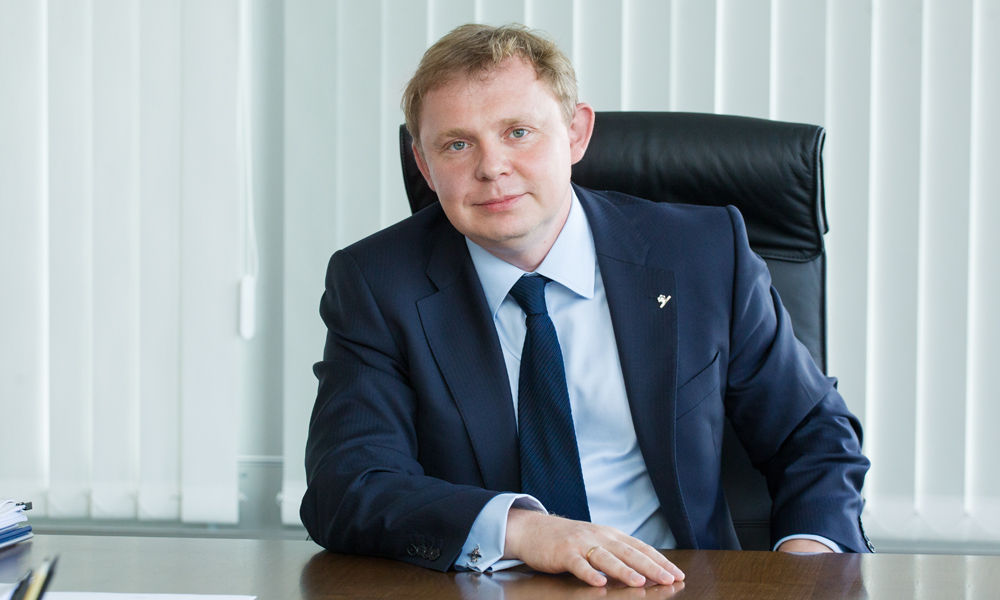
Efficient Maintenance
back to contents– What is the role of Rusatom Service as a maintenance service integrator? What results did you achieve in 2016?
– Our company was founded in 2011 as a business unit to develop corporate competencies in managing maintenance projects. Our task was to earn the largest possible share in the maintenance market and win foreign contracts. Rusatom Service is now active in 10 countries, providing maintenance services at 22 operating VVER-based power units and 8 reactors under construction. We deliver different complexity projects in Iran, Bulgaria, China, Hungary, Slovakia and Armenia. In 2016, our revenue from foreign contracts grew 33% year-on-year to reach 71 million US dollars, while the total contract portfolio amounted to 422 million US dollars.
– Much attention overseas is given to nuclear plant maintenance. Rosatom is marketing it as a ‘new product’. What are the company’s current prospects on the global market?
– The maintenance market is very much volatile and dependent on customer needs. If we take such segments as maintenance and repairs, retrofit, life extension, supplies, operational support and nuclear infrastructure, their size is around 1 billion US dollars per annum combined. I am only speaking about Russian-designed VVER-based stations abroad. Our service offering is limited at the moment, but we see good prospects both in the nuclear industry and other energy sectors (including green energy). It all depends on how our new products will fit into the global market and how competitive and flexible our company will be.
– What are your key projects, whether completed, in progress or just planned?
– First, these are life extension projects, particularly those carried out at the Armenian Nuclear Power Plant and Units 5 and 6 at Kozloduy in Bulgaria. These large-scale projects involving a great deal of workforce take several years and require total concentration. Another type of projects is maintenance and repair. Much work of this kind is done at Bushehr NPP in Iran. Earlier this year we fulfilled our four-year contract, having completed the third planned-and-preventive maintenance. We are now drafting a direct contract for spare part supplies, maintenance and repair, and staff training at Bushehr.
– In September 2014, Russia signed a contract for a feasibility study to extend the service life of Kozloduy Unit 5 up to 60 years. The contract was to be performed within a fantastic period of only 27 months. A similar procedure in Russia would have required far more time. How did you manage to squeeze everything into such a short period of time?
– The work was done by a tightly-knit international team of experts from 16 EU-based organizations in the spirit of trust, mutual understanding and cooperation, with 3 working languages used. Efficient and flexible project management, proactive approach to problem solving, result-driven attitude and openness to dialog produced a synergistic effect that helped us deliver the project two times faster than it was scheduled (2 years vs. 4–5 years). Once the project was completed, we were pleased to receive a positive feedback from the customer, Bulgaria’s Ministry of Energy, and our French partners Electricite de France and Assystem. At present, we are doing a similar job at Unit 6 under the contract signed on 28 January 2016.
– In late June 2016, Škoda JS and Rusatom Service signed a contract for technical support during the primary loop installation and pre-commissioning activities at Mochovce Units 3 and 4. Why is this project important?
– This is our first major project with Škoda JS. We are sure that it will be productive and facilitate further cooperation between our companies. The project is very important for us. Despite being rivals on the Central and Eastern European market, our companies have managed to find common grounds, agree on cooperation, and now expect to broaden their joint efforts in other countries.
– There were reports last October that Rusatom Service was considering the possibility of acquiring assets in Western and Eastern Europe. This would allow the company to enter the foreign reactor maintenance market. Are these plans still relevant?
– We are exploring the possibility of acquiring assets in Europe. Our strategy provides for the establishment of subsidiaries or joint ventures in countries that already have large VVER maintenance markets or intend to build large capacity nuclear plants. M&A activities in Europe are aimed at securing our position on the regional market and winning local resources (experts with international qualifications).




